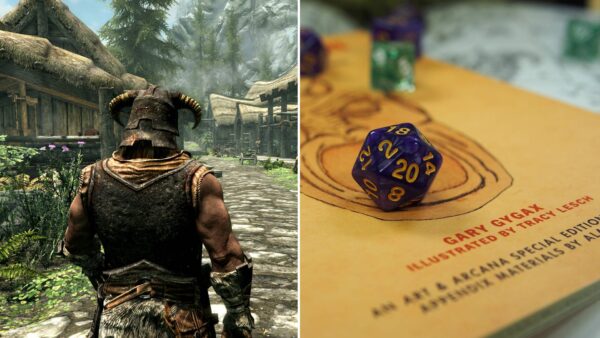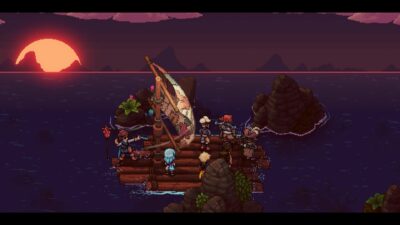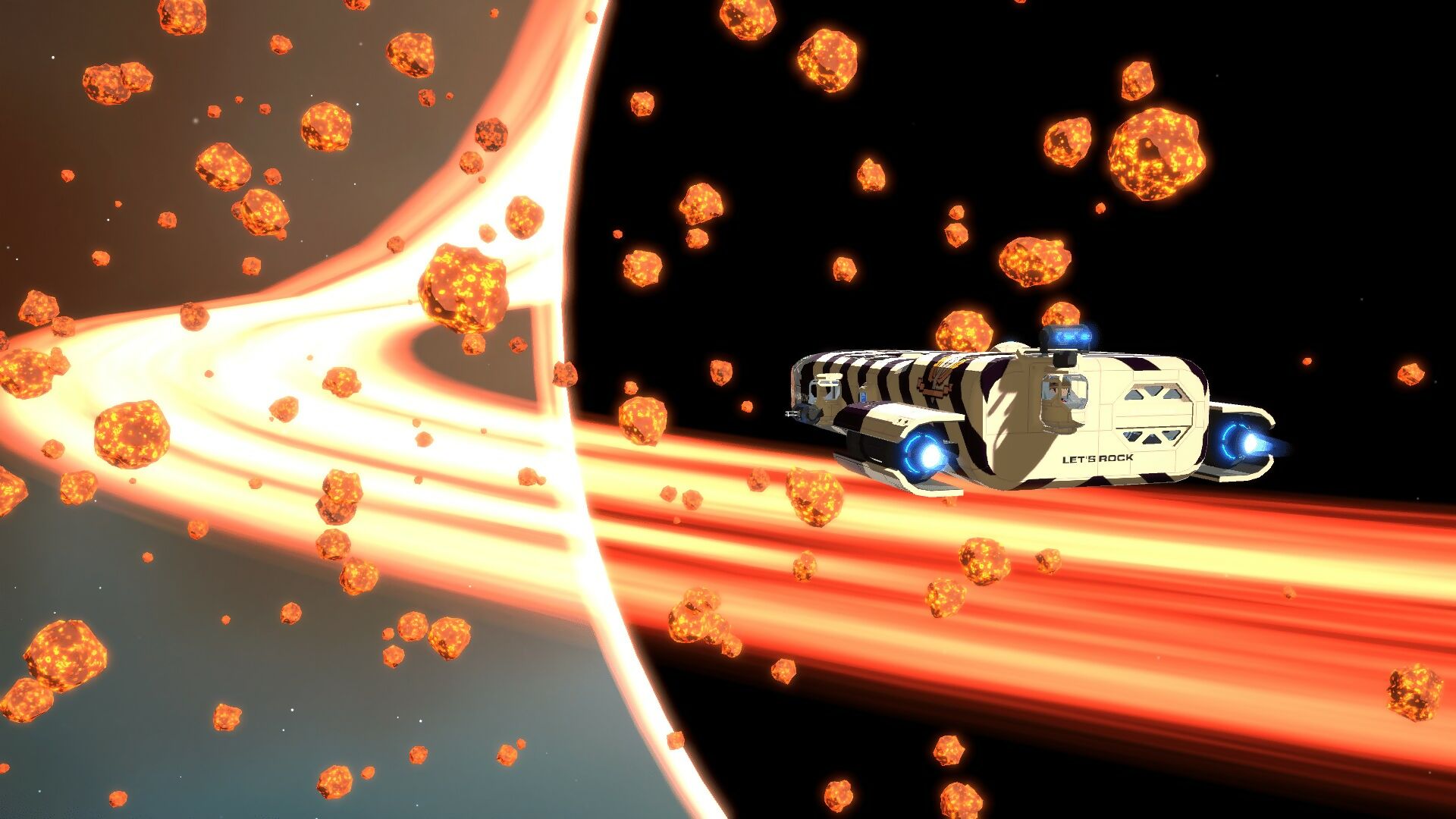
Runner Duck co-founders Dave Miller and Jon Wingrove share how they went from disillusionment to number one Steam success with Bomber Crew and Space Crew.
It’s the kind of stress that sneaks up behind you. Catches you unawares. One minute you’re happily flying among the stars and fulfilling all your Captain Kirk-style daydreams. The next, one of your engines is on fire, you’ve sent a crew member out to fix the damage, and you can only watch, helpless, as said crew member is knocked into the depths of space by a passing asteroid. It’s a not-uncommon occurrence in Space Crew, enough to make anyone shake their fist at the sky and let out a primal yell – which is something your humble writer may or may not have actually done during the scenario outlined above.
Space Crew’s the latest title from the UK’s Runner Duck Games, and a sci-fi-themed successor to its similarly brisk strategy-sim, Bomber Crew. Both games are about maintaining equilibrium in situations designed to constantly throw you off balance.
In Bomber Crew, you fly a WWII plane on various missions while avoiding the constant threat of death from enemy fire. In Space Crew, you have a fragile craft to maintain in the coldest depths of the universe, marauding aliens to combat, and missions that test your ability to command and manage your wayward team.
As strategy games, both Bomber Crew and Space Crew straddle the line between complexity and breezy fun; their respective craft are logically laid out, but your understanding of those controls soon goes out the window when you’re assaulted by enemy fighter planes, or trapped in a deadly asteroid field. In short, the Crew games are stressful – albeit in a fun way.
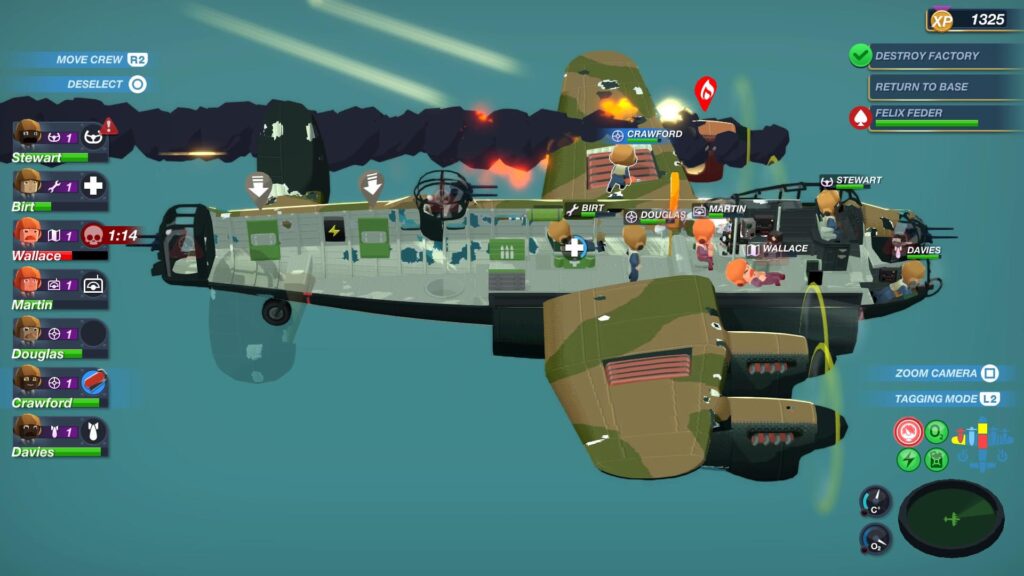
Things can quickly go heart-stoppingly wrong in Bomber Crew. When you’re forced to send someone out onto a burning wing, mid-air? That’s a bad sign.
Runner Duck co-founder and artist Dave Miller realised just how stressful Bomber Crew was during a visit to his GP one day. “It takes a certain player to enjoy this type of game,” Miller observes. “I went to a doctor recently and it turns out he’d played Bomber Crew. He was complaining about how difficult it was, how stressful it was. And this is coming from someone that works in the NHS!”
Bomber Crew itself was born out of – well, not stress, exactly, but rather dissatisfaction. Miller first met programmer Jon Wingrove in 2011; in time, they’d found Runner Duck together. But around six years ago, they were working at someone else’s company, and united by a collective sense of ennui. “We really didn’t enjoy the work we were doing there,” Wingrove says. “We were making software that we weren’t interested in in the slightest, and then sort of working around the edges…”
“We hated our jobs – absolutely hated them,” Miller adds. “I mean, Jon’s being polite. I hated it. A lot of the industry was moving towards free-to-play and mobile stuff. So we ended up doing free-to-play mobile games, which are fine. But we hated it. It just felt like the free-to-play model was just sucking all the heart and all the fun out. Most of the time, we were in meetings discussing how (to) change the colour of a button every week so people would notice it and give us money. And how can we make this game frustrating enough so that people give us money to skip elements of it? It genuinely made me depressed.”
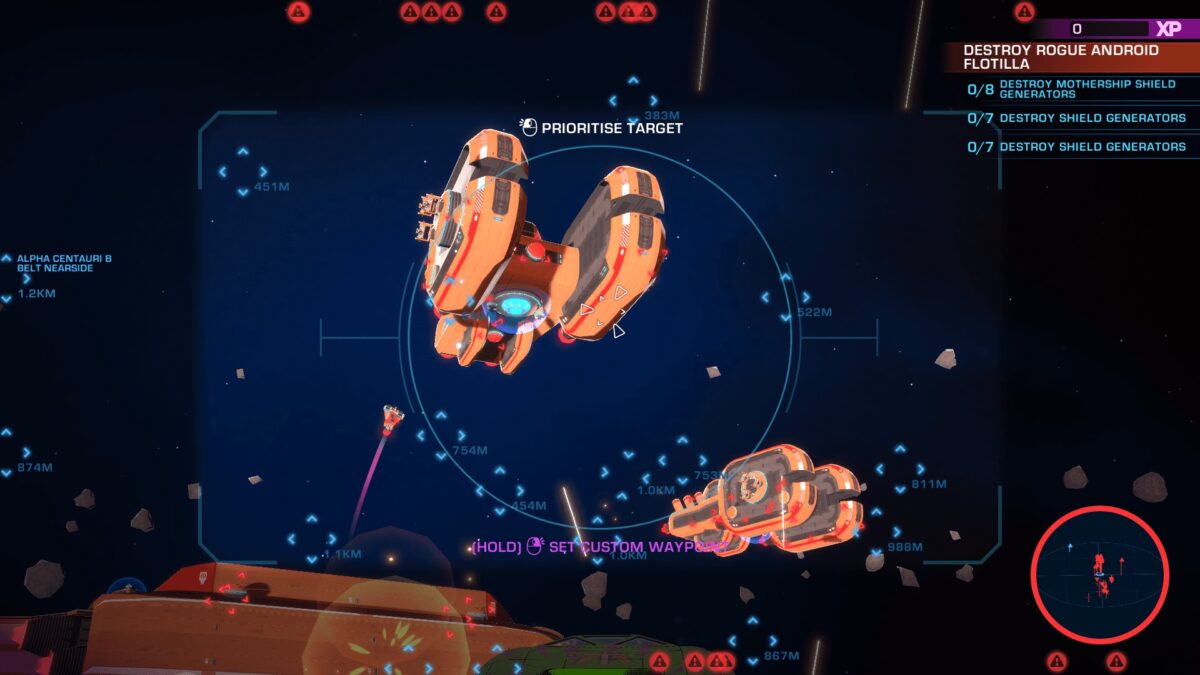
Space Crew’s fights occur in real time, and you need to tag incoming craft and prioritise attacks.
Spurred on by their collective disillusionment, Miller and Wingrove began working on prototypes. They didn’t necessarily know what they were going to make just yet, but they knew they wanted to make something more personal – that actually mattered to them. That was more reflective of the games they played as kids. “The bomber aspect – I’ve always been fascinated by that,” Miller says of their debut game’s early design stages. “My great-uncle was a radio operator in a Whitley bomber. Most of his missions were dropping propaganda leaflets and stuff. He did drop a few bombs. He just played everything down, but when you learn about exactly what the aircrews went through – it was so, so dangerous. It’s fascinating to me that they’re in this machine they have to operate, and all the systems have to work. Because as soon as your oxygen goes, you can’t breathe. If you have heated suits and they stop working, then you freeze. It’s like a life support machine and you have to keep all the plates spinning.”
With a concept in mind, the pair worked up a simple prototype, and began putting GIFs of it on Twitter. To their surprise, a publisher from Poland got in touch (“At first I had to check: was this a scam? But no, it was a real, decent publisher,” Miller recalls). This early nibble of interest made Miller and Wingrove realise that maybe they didn’t have to make the entire game before they tried to sell it. Maybe they should make a demo, write up a pitch, and see whether any publishers were interested in funding it.
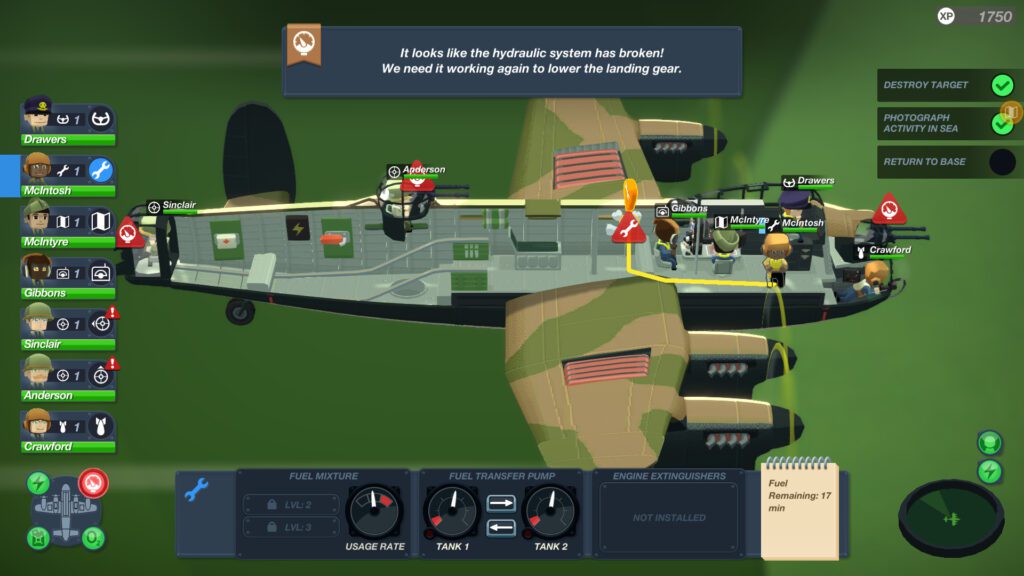
In Bomber Crew, keeping your mighty craft in the air required careful management.
“We worked it out on the back of a napkin in a pub,” Miller says. “How much money we might need to finish the project. And then we wrote an email that said, ‘Here’s the elevator pitch’, which was ‘FTL in a World War II bomber’… We made a little 30-second video from what we had running in Unity, put some music from Band of Brothers over the top to give it pathos. We said we need 15 months or something to finish it.”
Before long, Curve Digital stepped in, and Runner Duck had the backing it needed to make its first game. Even better news followed when Bomber Crew launched in 2017: the game hit the number one spot on Steam. A game that had begun as a part-time project, and had been the subject of many late nights, was officially an indie hit. “When you work on a game for so long, it’s hard to keep a perspective on it,” Miller says. “But when we got the first few hours of sales figures in and we saw it was going to be OK, it was a dream come true. I took my family out for breakfast the weekend after it came out, and it was probably the best day of my life. Because we had all that stress… the months, the years of work were paying off.”
Better yet: the success gave Runner Duck the foundation for making a second game. Or, as Miller puts it, “We didn’t have to go with caps in hands asking for our old jobs back…”
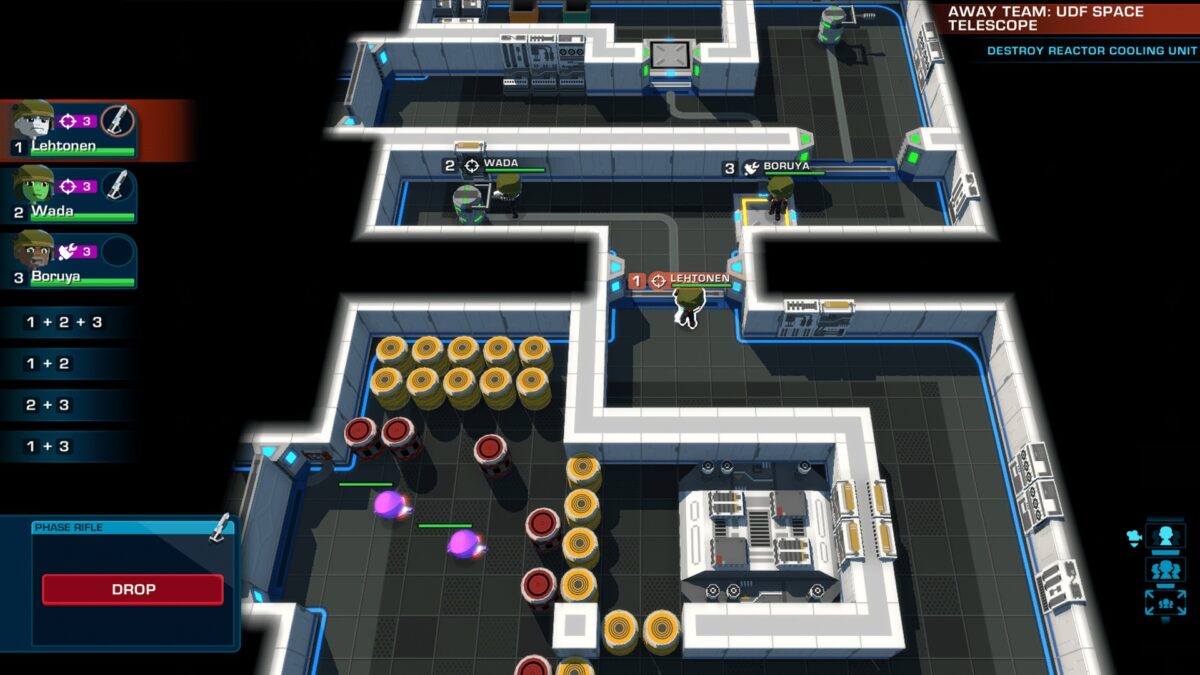
Space Crew: Legendary Edition’s Away Team missions send you out on tense on-foot skirmishes.
Of course, rather than go the obvious route and make a straight sequel to Bomber Crew, Runner Duck decided to take the series into the sci-fi realm. For Wingrove, Space Crew’s astral setting gave them the latitude to play with systems and ideas that wouldn’t have fitted in its WWII-themed predecessor: things like moving around in 3D space, zero gravity, and the threat of running out of oxygen. “One of the main things was bringing in new gameplay elements,” Wingrove says. “It’s about giving players a wider range of strategies and approaches.”
Having the backing of Curve Digital (its parent company, Catalis SE, formally acquired Runner Duck in 2019) also gave the duo the freedom to continue expanding Space Crew in the wake of its release in 2020. Which brings us to Space Crew: Legendary Edition – the free update released in October 2021. One of its biggest additions is an ‘away team’ mechanic, where three members of the player’s hapless crew can touch down on enemy outposts to complete on-foot missions. Says Wingrove, “We didn’t start prototyping the away team stuff until after we’d finished the main game… When I started messing around with the away team stuff, I didn’t actually tell anyone else I was doing it. I was secretly putting stuff together and I made a little video of it. I hadn’t got it to the point where it was playable, but I was convinced that although it looked like a different mode, it wouldn’t take a ridiculous amount of work.”
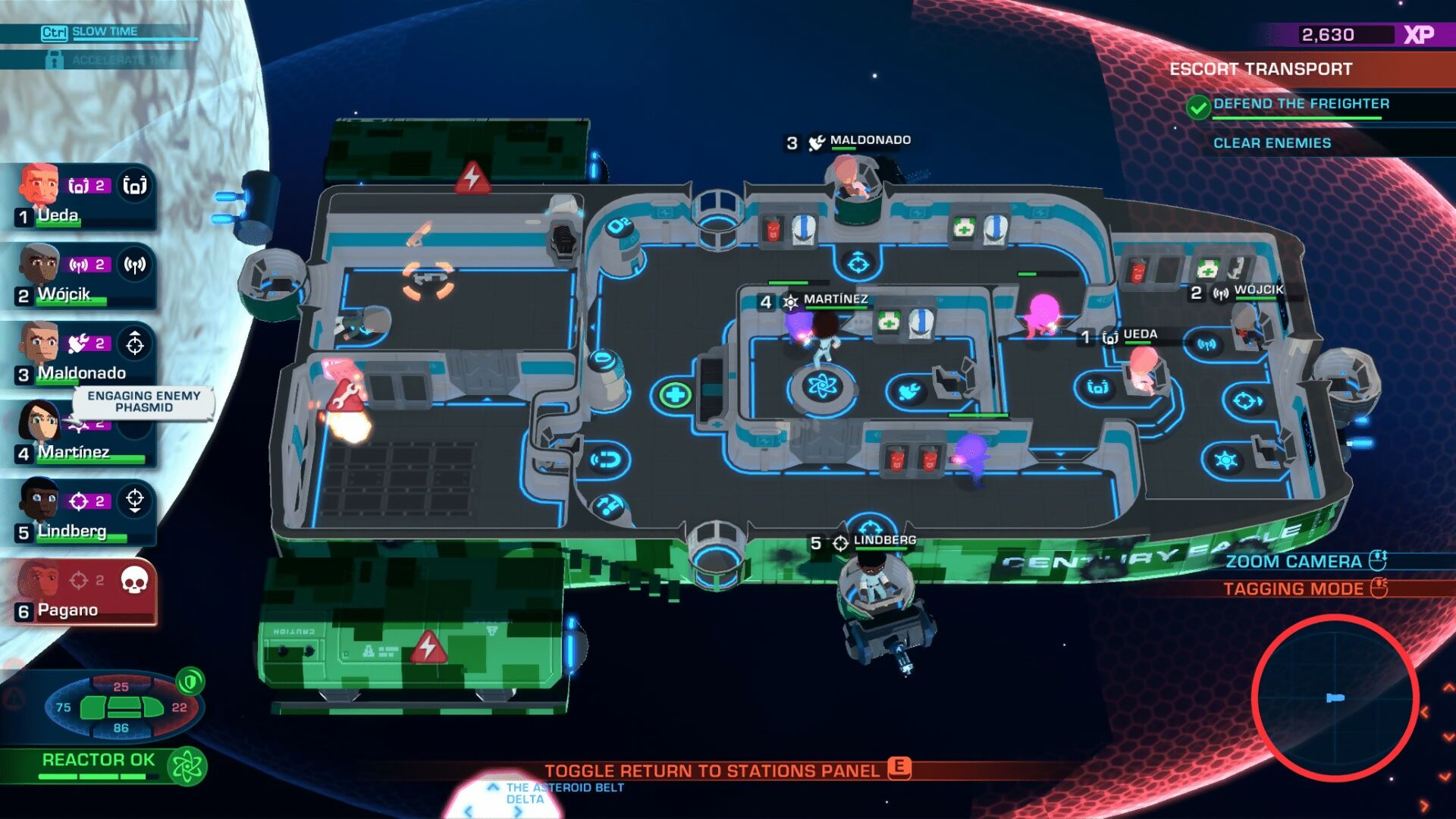
In Space Crew, your missions are made even more nail-biting when the occasional alien sneaks aboard.
An additional set of missions – the Android Ambush campaign – was conceived around the same time, and ended up in the same Legendary Edition update. All told, Runner Duck managed to get the expansion finished in about a year – not bad going, given that, although the team had grown from two members to four, it’s still tiny. For now, Miller and Wingrove are happy to keep Runner Duck as a small group of friends, working on games that get them creatively fired up. “The team is a really nice size for us,” Wingrove says. “I think you could go up a little bit more in team size and not be any faster because there’d be all the extra communication it brings.”
“We’ve worked in large teams before, and at bigger companies,” Miller adds. “I think Relentless was over a hundred people at one point. But if we got that big, we’d just become managers, and that’s not really what we signed up for.”
Aside from continued support for the Crew games, Runner Duck is also working on an entirely new game, though details of that are still under wraps. One thing we can predict? It won’t contain any of those free-to-play elements that left them so disillusioned with their old jobs. “It’s nice to work on a game where our focus is on making it as good as possible,” says Wingrove. “We’re not trying to trick anyone. Which is why we didn’t like the free-to-play stuff – we just want to make something really high-quality, so that people will like it, enjoy it, and want to tell their friends.”
Fodder for thought
In the Crew games, losing a team member can cause a genuine sense of loss – partly because each one has its own name and individual quirks. It’s a sense of connection that Miller first experienced playing Sensible Software’s Amiga classic, Cannon Fodder, as a youth. “Cannon Fodder was great because all the characters were called Jools and Jops and things like that,” Miller says. “It really stuck with me because when you lost Jools or Jops or one of the early characters, you really lost them – you go back to the start screen and there’s a little gravestone on the hill. So it really, really mattered when you lost a character. More recently, I’ve been playing Call of Duty and stuff, and I just kind of felt like it doesn’t matter – I can just restart from the last checkpoint. We wanted to make a game where every decision you make has a consequence.”
A version of this article was first published in the January 2022 edition of Wireframe magazine. Runner Duck have since announced Badlands Crew, out for PC in 2024.



